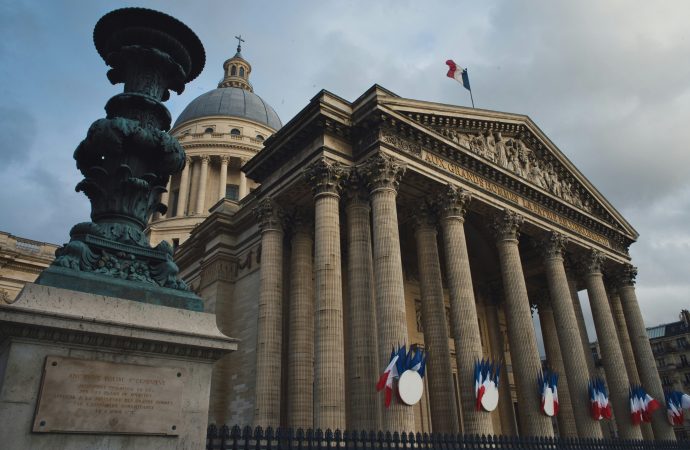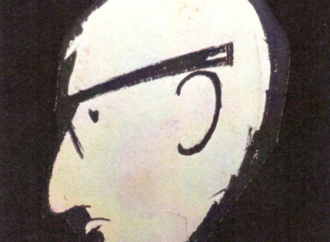President Macron may or may not be Europe’s saviour — to answer the question put by the Economist on its June 17th cover — but he has clearly become a European leader on par with Angela Merkel. He has the advantage of youth and a powerful mandate while she brings unparalleled experience. Assuming she is re-elected in the forthcoming German elections, the “MM” team is one of equals. Macron has shown his mettle in handling Trump and his “make the planet great again” meme.
Prime Minister Trudeau too has shown his mettle; first, early on, as a much more mature leader on the world stage than was expected; second, in handling his first encounter with Donald Trump with outstanding professionalism, notwithstanding real concerns for the largest bilateral trade in the world — a work once again in progress; third, in having the courage to emulate at a much closer range, the Angela Merkel assessment of intractable differences between today’s US and Europe, leading Canada to what one could call “an agonizing reappraisal” of the relationship. Chrystia Freeland’s foreign policy statement has opened a new book for Canada and it is one that Trudeau and Macron, in tune with Merkel, have clearly decided to read together.
Important in the emerging relationship are not just the foundations — the Atlantic Alliance, the Comprehensive Economic and Trade Agreement (CETA), our common perspective on multilateralism — but, in the short and medium term, the fact that both leaders need one another to face the American president… One might even say to interpret together what the latest presidential tweet portends. I have spent most of the last three months in France and Canada is one of the most fashionable countries over there. It is not the first time that the French have relied on us to explain the US to them but today this is taking on a certain urgency. In return, we may need to rely on France and Europe to provide us with some strategic depth or independence.
Another critical point where we have joined the French — some say surprisingly — is on defence. Clearly Trump’s message to NATO has had an impact on the non-US West, including Germany. The French have always had a very clear defence policy. They might not be at the mythical 2% of GDP, but at 1.7% with major contributions in Africa, they belong to the top-tier countries on that score. Pretty much for the same reasons as argued by Angela Merkel on the need for Europe to rely on its own capabilities to ensure peace and stability, Canada has courageously stated that it could no longer rely on the US for its defence and must follow words with deeds — this hugely redefines the traditional Liberal stance on defence. In that vein, our co-operation with France in Africa will be highly worthwhile.
Our Prime Minister’s “European diplomacy” — Italy, Germany, France, Belgium, etc. — has been quite remarkable: we need CETA ratified and President Macron, as a committed Europeanist, is a key ally in the process. There is also “la Francophonie,” which in the broader context of world crises has been somewhat of an “art mineur,” albeit important for Canada. While the Hollande government reduced France’s contribution, it seems that this will be reversed. A rekindling of the commitment of the organization’s two major northern partners to the political dimension of la Francophonie would be timely, all the more so in the context of our United Nations Security Council campaign. Our last successful campaign, for the 1999–2000 seat, was largely based on a unanimous vote for Canada by all 53 African countries, which form the bulk of both la Francophonie and the Commonwealth.
Of course, there is a total unity of purpose when it comes to climate change, on which France and Canada are essential partners. Canada has built a lot of credibility in France due to its seminal contribution to the Paris Accord. But it will take much work for the next three years to avoid having the accord destroyed by Trump. Somewhat difficult co-operation with China — the alternative major polluter — and Canada might find itself hard-pressed to match some of the more advanced commitments made by hydrocarbon-poor European countries.
In global terms, although France and Canada cannot do it alone, France is more engaged with Russia while Canada is strongly committed to defending our smaller European partners fronting Russia. During the campaign, Macron suggested an independent, regular, sovereign dialogue with Russia. He held his ground with Putin at their Versailles meeting but clearly he is far ahead of his Canadian counterpart in such dialogue. On the Middle East, while Canada remains tepid on the peace process, France within the EU has always played a leadership role in ensuring continued concern for the plight of nation-less Palestinians.
On terrorism, we are at one with Europeans and consultations with France have always been extensive. In fact, terrorism is such a critical issue that we also consult with the Russians. In fact, I have often pleaded for France to join the Five Eyes community (US, UK, Australia, NZ, Canada) although I recognize that France may feel it would impose obligations not in tune with its concept of “independence nationale.” In Syria and Iraq, we co-operate fully within the coalition.
Finally, people tend to forget that France is also a nation of the Pacific, which provides real opportunities for co-operation in an area where we wish for greater presence. France, for its part, is very interested in the Arctic and therein lies another area of potential co-operation.
Overall, on substance and mutual feelings of compatibility, these two younger men definitely have it.










